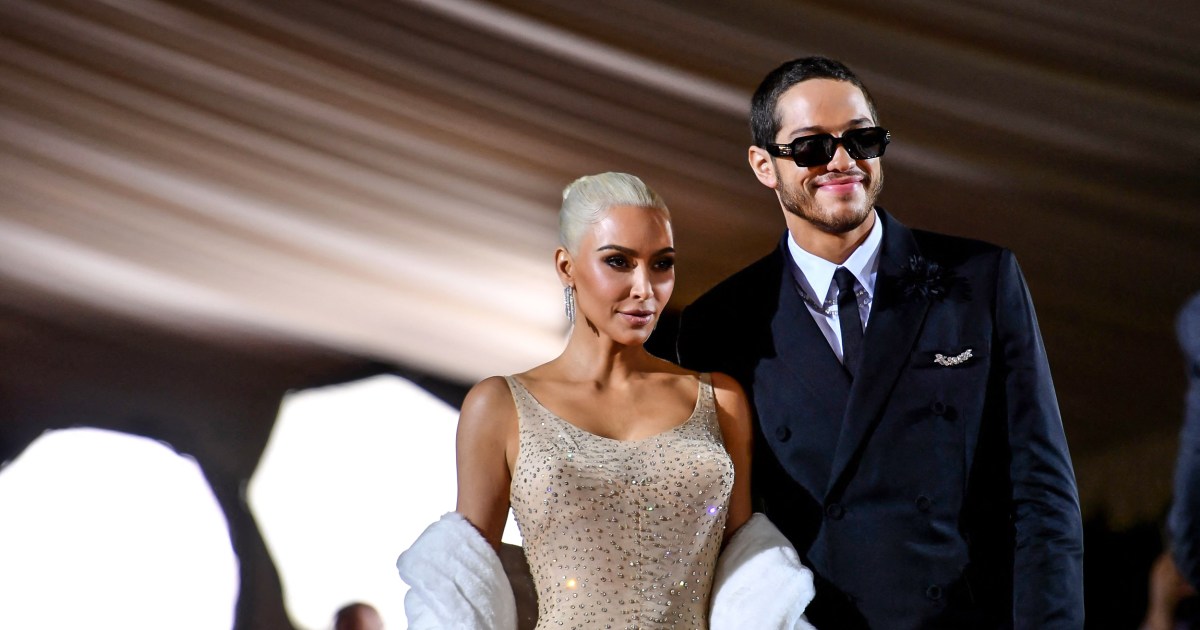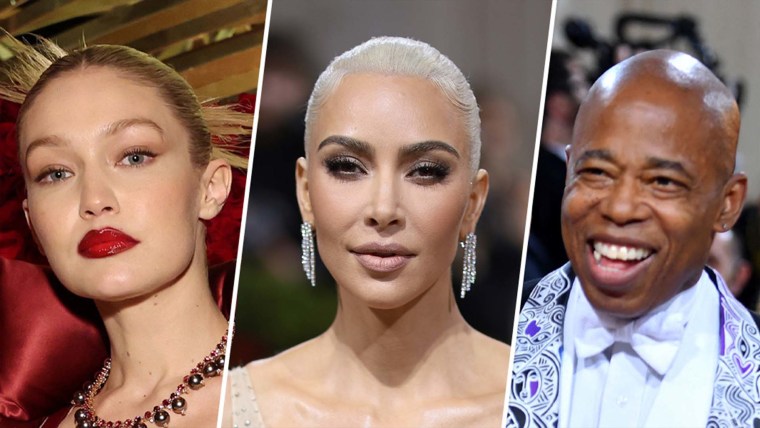
Kim Kardashian Met Gala dress and diet remarks do not align with Skims: OP/ED
Kim Kardashian, the founder of underwear, shapewear and clothing brand, Skims, stepped out at the recent Met Gala, touting her extreme dieting tactics to lose 16 pounds so she could fit into a vintage gown once worn by Marilyn Monroe.
With a $3.2 billion valuation reported by The Business of Fashion, Skims mission states that they’re “setting new standards by providing solutions for every body.” But Kardashian’s public statements about her crash dieting to fit into a dress do not align with her mega-brand’s positioning. And it’s a problem.
After all, Skims is continuing to build on its partnership with the U.S. Olympic team, most recently outfitting athletes in loungewear for the 2022 Winter Olympics in Beijing. People around the world will be watching as the brand leverages its partnerships with professional athletes. Those athletes, of course, represent hard work, strength, balanced health and well-being. They aren’t eating tomatoes and wearing a sauna suit twice a day to fit into a dress.
So, what does Kardashian stand for? Is it body inclusivity and celebrating “every body,” or is that a facade that’s just good for business? Her words have weight. And they are not aligned with what Skims the brand is built upon. Skims did not return a request for comment.
Kardashian’s remarks about fitting into her Met Gala gown is also yet another example of someone glorifying dysfunctional behaviors to attain a size and image goal that our society has long upheld as “ideal.”
When asked about the initial fitting for the dress Marilyn Monroe wore in 1962 to sing “Happy Birthday” to President John F. Kennedy, Kardashian shared with Vogue, “I always thought she [Marilyn] was extremely curvy. I imagined I might be smaller in some places where she was bigger and bigger in places where she was smaller. So, when it didn’t fit me, I wanted to cry because it can’t be altered at all.”
Her reaction to wanting “to cry” resulted in crash dieting over the course of three weeks. “I would wear a sauna suit twice a day, run on the treadmill, completely cut out all sugar and all carbs, and just eat the cleanest veggies and protein. I didn’t starve myself, but I was so strict,” she recounted.
Would you encourage your daughter, niece, or friend to behave this way?
Kardashian’s words have consequences, and many are speaking out, including actresses Lili Reinhart and Jameela Jamil. Jamil went as far as to show off her curves and celebrate gaining 10 pounds over the weekend to her 3.6 million Instagram followers. “I hear Kim and Kylie keep publicly bragging about their fast weight loss. Well for balance. I am bragging that I gained 10lbs. And I love it,” she wrote.
This isn’t the first time Kardashian and Skims have had a branding problem. The brand initially launched under the name Kimono, immediately stirring controversy across social media and resulted in a public statement from the mayor of Kyoto about cultural appropriation. This was followed up by the hashtag #KimOhNo and over 130,000 signatures on a petition boycotting the original name.
Brands have reach, and so do their founders, especially when they interact regularly on social media. But we must ask ourselves: How many fumbles does a global brand, and its founder, get a pass on before accountability comes into play? Body image and business are not games.
Laura K. Sawyier is a fashion consultant, personal style, and branding expert who works with Fortune 500 companies, non-profits, and individuals, using evidence-based research within the Applied Psychology of Fashion. A style expert for various media outlets, her work has been featured in Fast Company, Travel + Leisure, Elle India, The Zoe Report, among others.


